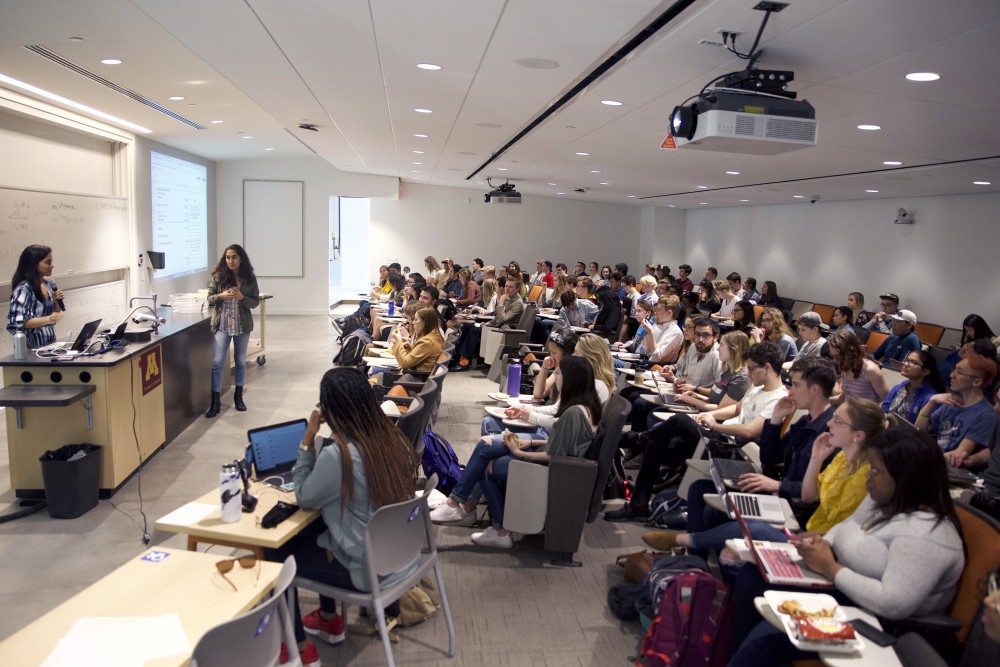Because of a new Minnesota Student Association initiative, emergency contraceptives like Plan B One-Step may be easily acquired at the University of Minnesota in the near future.
Due to limited hours at the University’s Boynton Health and high prices at drugstores, MSA is exploring ways to make emergency contraceptives more accessible to students on campus. The main proposed solution is introducing vending machines to Coffman Union that sell levonorgestrel, commonly known as Plan B.
Sravani Sadineni,MSA health and wellness committee director, said MSA’s goal is to help students overcome roadblocks in attaining emergency contraceptives by providing affordable, accessible options in a public place.
“I think we’re in a very sensitive period of our lives right now. … Sometimes people make mistakes, and I think this is a way for people to kind of take control of that situation and … retroactively practice birth control,” she said.
Boynton offers several emergency contraceptive options, which are covered by a majority of insurance plans as well as the University’s insurance. However, Boynton is only open until 4:30 p.m. on weekdays and is closed on Saturday and Sunday, making accessing emergency contraceptive options difficult.
First-year student Ellie Stimmel has a prescription for Plan B through Boynton, and said the process to get it was fairly easy. The limited hours, however, have made it challenging for her to pick up emergency contraceptives for her friends in the past.
Another first-year student, Rena Eschenburg, said she struggled to access emergency contraceptives for herself because of the lack of information about where she could get it and Boynton’s limited hours. She said it closes shortly after she gets out of classes, making it difficult to stop in.
When she needed emergency contraceptives, Eschenburg said she went to a pharmacy and bought Plan B over the counter for approximately $50 because she did not know how to access it at Boynton.
“I was so frightened by the situation. I did not want to get pregnant at all,” she said.
Price is one of the main hurdles for accessing emergency contraceptives for students. Prices range anywhere from $40 to $100 at drug stores and pharmacies, said Ann Laros, Boynton’s assistant director of primary care and women’s health.
Laros said Boynton offers levenorgestrel as well as copper IUDs and ella, another morning-after pill. These options are covered by the majority of insurance plans. Boynton Director Public Health Dave Golden acknowledged the lack of awareness many students have regarding the services offered at Boynton.
“We have very high awareness of Boynton, but [not] when it comes to some of the specific services,” Golden said. “About half the student population … is certain that we have a full pharmacy here,” he said.
Boynton has worked with MSA and shown support for the expansion of accessible contraceptives. Golden said they have spoken several times with a vending company that is exploring the logistics of including emergency contraceptive options in vending machines around campus.
Golden and Laros emphasized that accessibility to emergency contraceptives is vital on college campuses due to the extreme impact that unplanned pregnancy has on a student’s education.
“An unintended pregnancy has significant impact on a couple … [or a] woman or man’s ability to succeed at college, and we’re all about making people successful in college,” Laros said.








